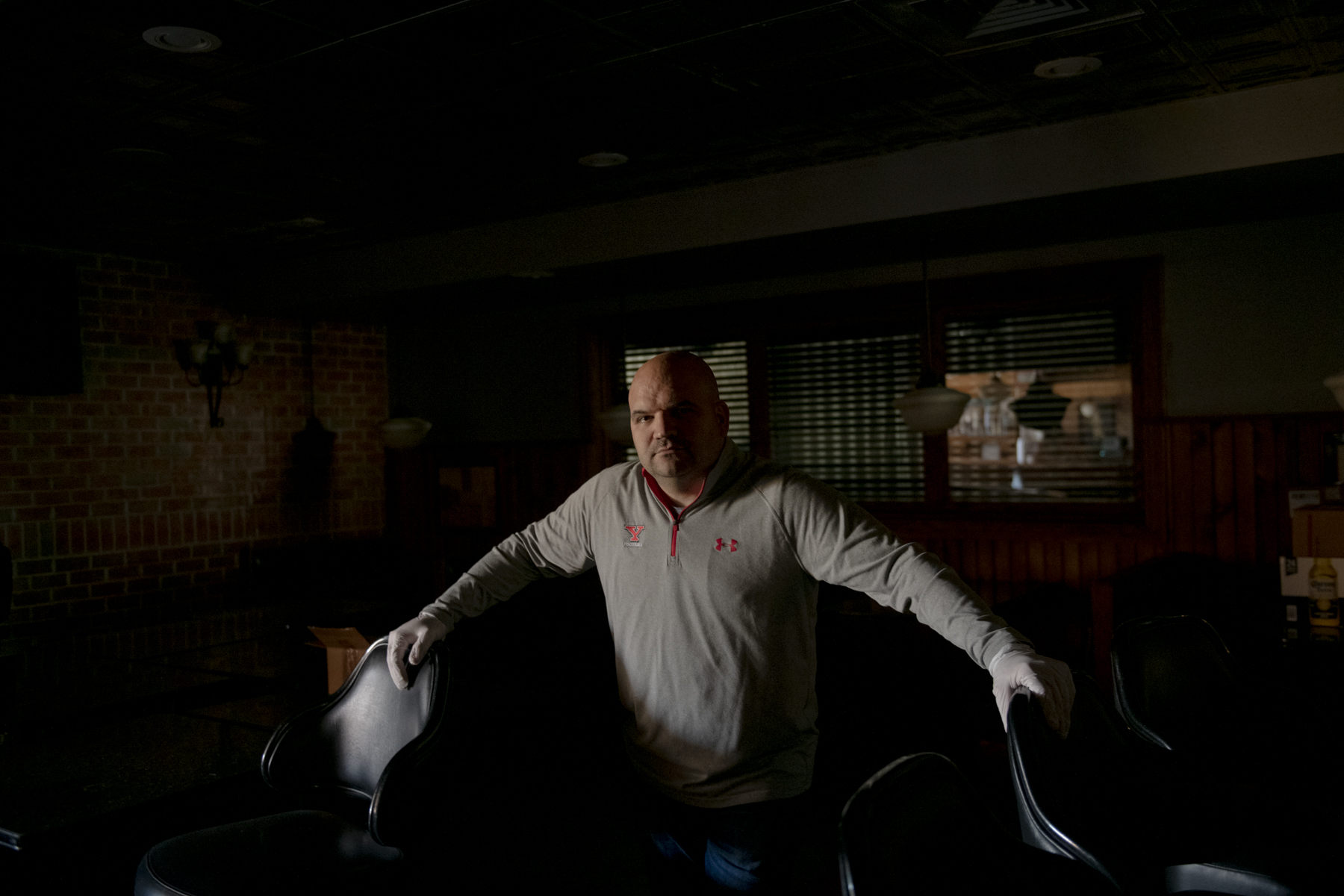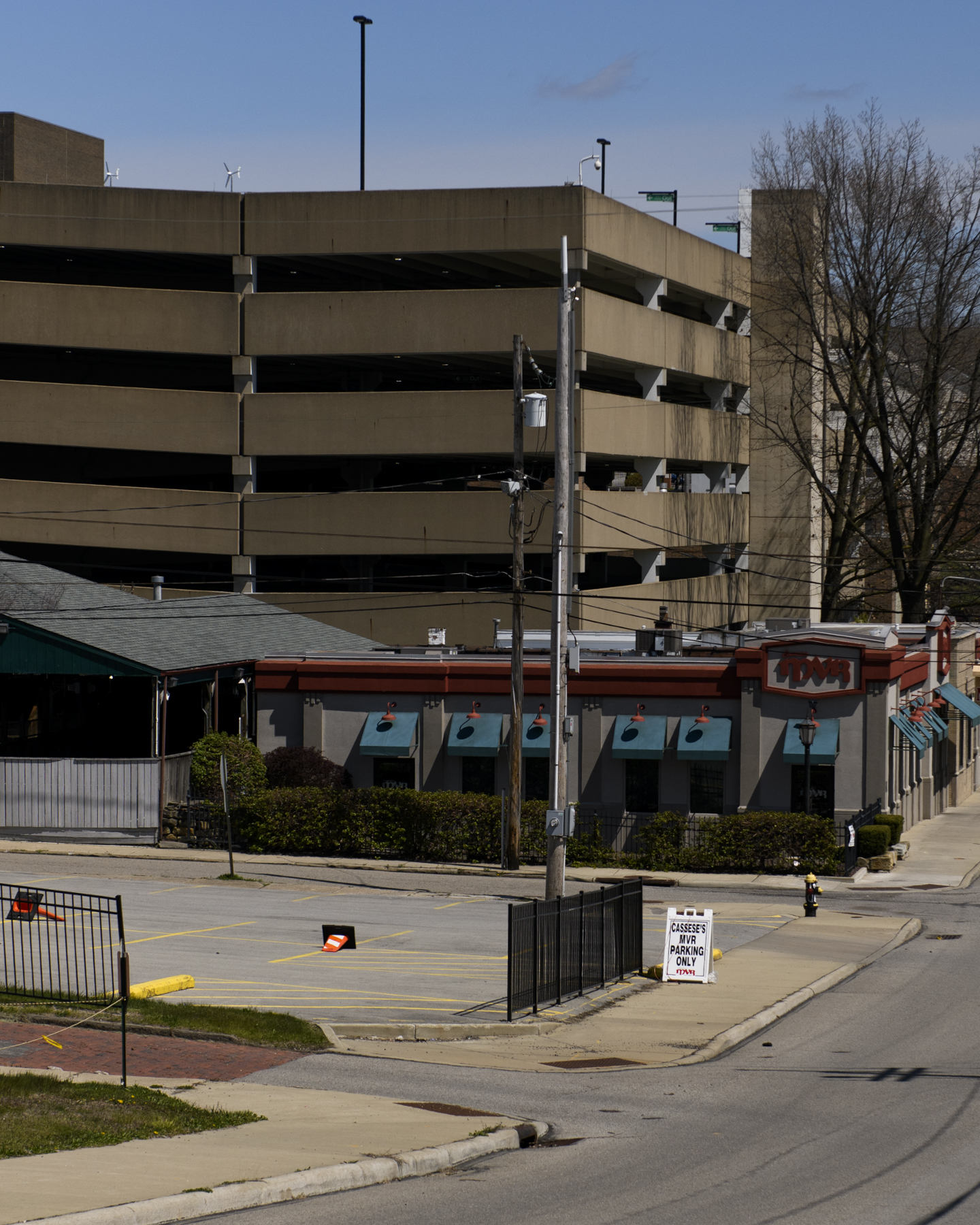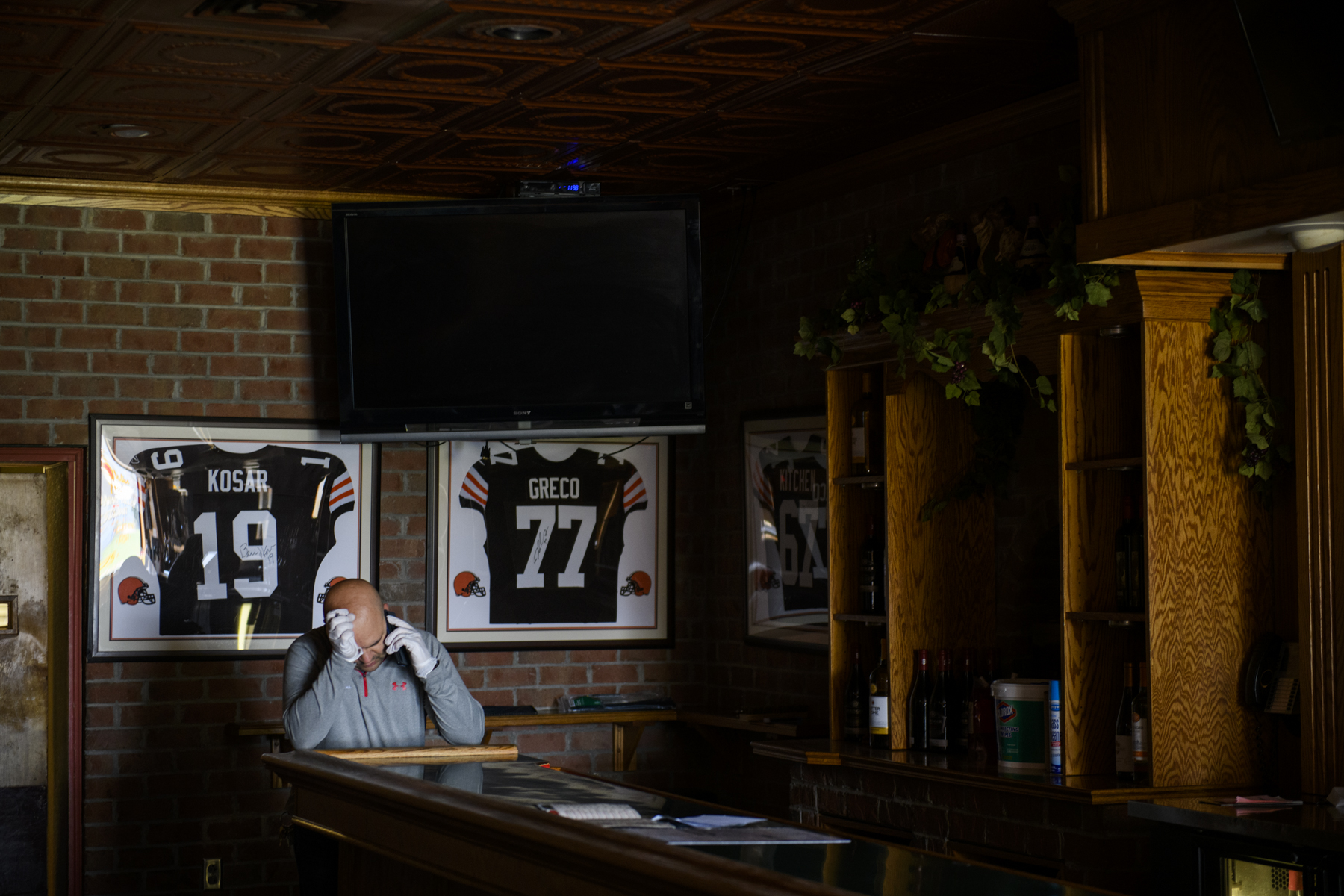YOUNGSTOWN, Ohio — Joe Cassese has lived and worked and prayed in this old town all of his life. It’s died before; and he is doing whatever he can to not let it, or his business or resolve die again.
But, he admits bluntly, it isn’t easy.
“Coming down that hill every morning and leaving every night and seeing that empty parking lot messes with your psyche,” Cassese says of his daily drive to and from the family restaurant. “And I am a positive person,” he adds, with a strain and sadness weighing on the buoyant personality with which patrons of his restaurant are familiar.

Cassese’s family runs the Mahoning Valley Restaurant in the Smoky Hollow neighborhood of Youngstown. But nobody calls it that here — it’s just the MVR, one of the only remnants of a neighborhood that once was.
From this neighborhood come countless stories of who built America — not through the eyes of the men, who owned the mills and factories that once lined Crab Creek and the Mahoning River, but from the immigrants from all over the world who settled here in modest homes and set about doing the work.
They gave their blood and sweat and tears to make the bridges and ships and roads and buildings that formed the bloodstream and backbone of America. It was an era where the dignity of work went hand in hand with honor.
By the 1920s, most of the migrants who lived and worked here were Italian. In 1927, Carmine Cassese opened a single pool room that swiftly became a restaurant and then an institution.
Later, the neighborhood homes would be erased by time, progress, and redevelopment, yet the MVR endured. It adjusted and served what it always did — good food, a feeling of belonging, and the most incredible bocce courts to be found for miles in any direction.

Today, Cassese is right. It is downright eerie to drive past the empty parking lots and side streets around the MVR; it’s eerie not to hear the laughter and the music filling the night air on Walnut Street coming from the outdoor seating or the many-tiered bocce courts.
And it is eerie for Joe Cassese to be so alone at his restaurant.
“I’m a glass-half-full guy most of the time,” he says. “I’m starting to get worn down, being positive, I have six employees working. In reality, I’ve laid off over 40, so it’s a mess. It’s a mess … I just would have never believed how fast the cycle stops being a cycle, and it comes crashing down. It really started the week before we shut down because they had scared people to death, and people stopped coming out.”
He didn’t just lose day-to-day restaurant business. He lost bocce tournaments, catering, sports banquets, wedding showers, baby showers, bowling leagues, and the monumental catering business he does with Youngstown State University, whose modern campus expansion touches Smoky Hollow.
“That is the thing about a business like this,” he sighs. “Those missed events are never coming back like that. Twenty-twenty is beyond a loss, no matter what we do, because there’s so many things that people don’t understand about the restaurant business.”
“When you come here in the summertime, and you see all these people drinking beers and playing bocce and drinking wine, and it’s a Tuesday or a Thursday, you’re like, holy s—, look at this, in Youngstown, right? And it is, it’s a cool thing. But just like anything else in the wintertime on Monday is a Monday and the Tuesday is a Tuesday, and the summer in my business makes up for when we lose or break even in the winter,” he explains. “That’s what makes the year whole.”
“The thing that’s so interesting about our business is sometimes it’s the bonus thing that takes you to the next level. To that point, sometimes a Wednesday is just okay in April, but when So-and-So Incorporated orders 12 trays of food at lunch for a corporate meeting and then at night, or I have a delivery to high school seniors playing in their last softball game or their first softball game — five more trays, those two items can be what makes the day. They’re gone. They’re gone,” he says as the frustration of his new reality tears at him.
Cassese pauses to gather his thoughts.

“So what we’re doing is carryout Tuesday through Saturday from 4:00 to 8:00 p.m. And then in very specific instances, you can’t just become something you’re not overnight. Like look, I’d love to be able to say we can deliver, but we are in Smoky Hollow in downtown Youngstown. And so our customer base comes from the tri-county area … We’re not made to really deliver.”
“If someone calls and they’re placing, with lack of a better way of saying it, an order of substance, then I figure out a way to deliver it, and to be honest with you, it gives an awesome opportunity for me to give someone who needs a $20 bill in their pocket on a delivery some work.”
For the most part, the MVR is now a curbside operation. They bring your order out to the car.
“We’re trying to keep some sense of normality, and we’ll do whatever we’re told,” he says. “But people want to come in the door. Even from 12 feet away, they want to say, ‘how you doing?’ Even if they don’t know me, they want to … We’re human beings, we want to interact, and I think it makes them feel good to go in and see the person,” he says.
“Hey, listen, I make no bones about it, people are doing an unbelievable job of coming in and leaving a nice tip for the staff. And the four to six people working each night, they take that money, and they divide it up, and it’s making a big difference in their lives right now.”
The Cassese family is beloved in these parts, when Joe’s father, Carmen Cassese, passed away at 57 in 2013, the third-generation MVR owner and longtime equipment manager for the YSU football team, had over 1,000 people filling St. Dominic’s Church and spilling out into the parking lot and streets. There is a lot of loyalty and goodwill toward his family name.
“I have a ton of customers that are friends that literally reached out,” he says. “They said, ‘Hey Joe, in my life right now things are okay, give me a call if there’s somebody that works for you that needs a little help.’”
Cassese is right that the empty parking lot outside the MVR is jolting. The drive away is also sad, because those of us who have been around these parts for a while know what this town feels like when it’s empty. In 1977, it was industry that died, and no one knew how to bring it back.
Today’s emptiness is even harder because everyone now has to face the question of how we bring all of us back.

